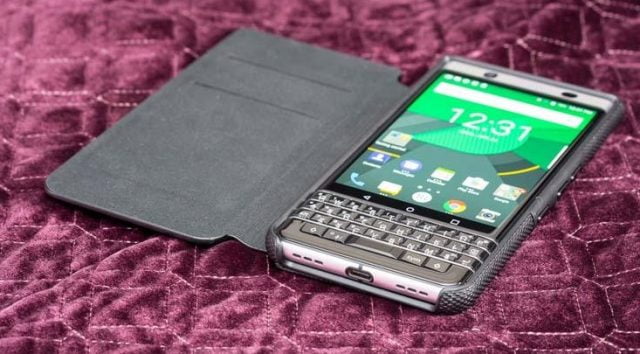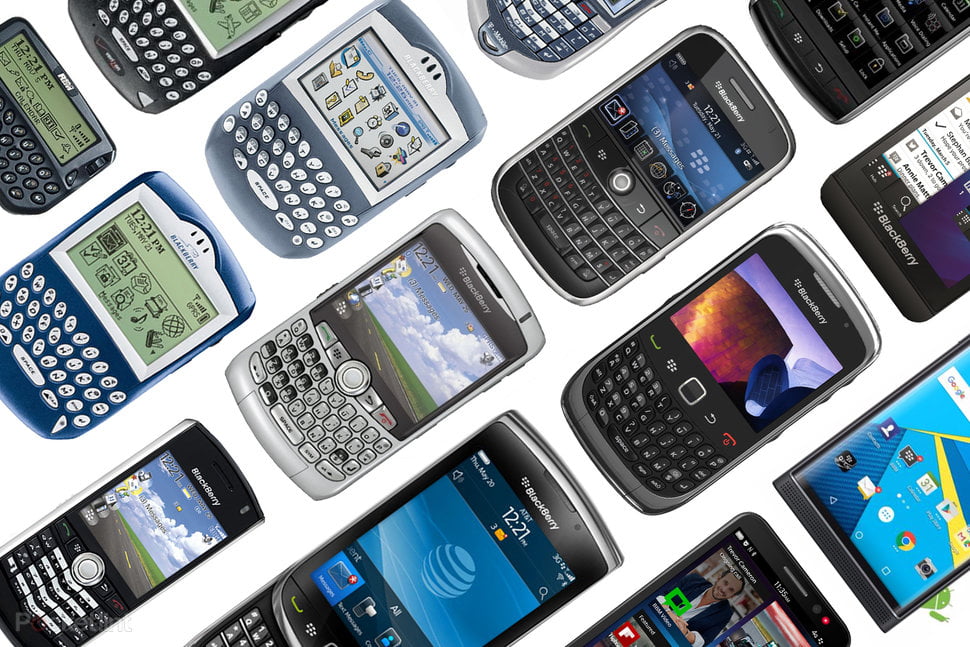
Over the past seven years, BlackBerry’s market share has slipped away, lost to Apple and Android. The company made multiple attempts to revive its own fortunes, from its oft-delayed BB 10 operating system to devices like the Z10 and Passport. Nothing stuck, including the company’s first attempt to combine a hardware keyboard and the Android operating system, the BlackBerry Priv.
Last week, reviews started to roll in on a new BlackBerry device, albeit one marketed, manufactured, and distributed by TCL rather than by BlackBerry itself. It’s the last smartphone BlackBerry intends to design on its own, and according to all the reviews we’ve seen to date, it’s a surprisingly excellent device. Engadget, PCMag, and The Verge have all published reviews of the new BlackBerry KeyOne and they’re collectively the best we’ve seen on a BlackBerry product in years.
Before we dive into the reviews, we’ll hit the basic specs. The KeyOne runs Android Nougat 7.1.1 and uses a Snapdragon 625 SoC. That’s an eight-core CPU clocked at 2GHz (all eight cores are based on the Cortex-A53). Performance when running single-threaded code will not be particularly strong, since the Cortex-A53 is intended for low power consumption, but eight cores should give it reasonable juice with multithreaded code. The KeyOne has 3GB of RAM, a 3505mAh battery, a 12MP back camera capable of 4K capture with digital image stabilization, and an 8MP, 1080p front camera. It offers 32GB of storage and can be expanded with up to 2TB from a microSD card, if and when such voluminous capacities become available.
As the name and photos imply, the KeyOne also features a physical keyboard — BlackBerry’s last farewell to the stalwart fans that have stuck by the company through thick and thin. According to all three sites, the KeyOne feels more like a BlackBerry than any of the DTEK rebrands it launched last year. Everyone complimented the fit and finish of the device and compared it positively with the Priv, whose form factor and overall size profile were not well-regarded (that’s the opinion of the various reviewers, not myself). PCMag notes that the physical keyboard is “full of cool tricks,” with a fingerprint scanner built into the spacebar and the ability to assign shortcuts to custom keys. The speaker and earpiece audio quality also got top marks, and the KeyOne supports Bluetooth 4.2, the most current version of the standard.

The KeyOne keyboard. Photo by PCMag.
The Verge describes the fit and finish of the KeyOne as being “very good,” with satisfying response from the keyboard and buttons, and a rubberized finish on the back that makes it easy to hold the device. If you’ve ever used a smartphone with an oleophobic coating, it can feel like the phone is actively trying to fling itself out of your grasp to smash on the floor. The KeyOne has no such problems. The relatively small 4.5-inch display is a 1620×1080 panel with a 3:2 aspect ratio, and reviews here are mixed. The Verge found the square-ish display to be constricting in many cases, though they noted that it worked well for email; Engadget reported no such problems.

The BlackBerry hub. Photo by Engadget
The KeyOne doesn’t ship with stock Android, but Engadget thought that the customized Android interface was “mostly helpful,” though there are some issues with clearing notifications from the BlackBerry Hub and programming the convenience button. Overall performance was modest in testing — this isn’t a smartphone to buy if you care about gaming — but the Snapdragon 625 SoC pairs with the 3505mAh battery to offer excellent battery life. PCMag reports 1.5 days with regular usage, The Verge notes that most users can get two (while the author’s heavy usage resulted in him getting just one day), Engadget reported an easy day with heavy use, and up to two days if the device is used carefully. Regardless of personal needs, all three reviews are quite complimentary about battery life.
Contents
The Verdict
All three reviews also wind up in roughly the same place: The BlackBerry KeyOne is a great productivity device. If you’re a BlackBerry keyboard die-hard who hasn’t moved to a touch-screen phone (or would like to move back), this phone was made for you. Keep in mind, however, that the phone’s 3:2 display ratio, resolution, and specs are all designed to deliver the kind of productivity that made BlackBerry devices a legend. If you’re looking at the KeyOne as a typical Apple or Samsung user, you may not find the physical keyboard or square screen ratio much to your liking.
With a $550 MSRP, the KeyOne isn’t cheap. But BlackBerry has delivered a solid swan song for its own hardware development team. If you’ve long hoped the company would deliver one last solid product before its hardware designers exited stage left, your patience has been rewarded.
[“Source-extremetech”]




